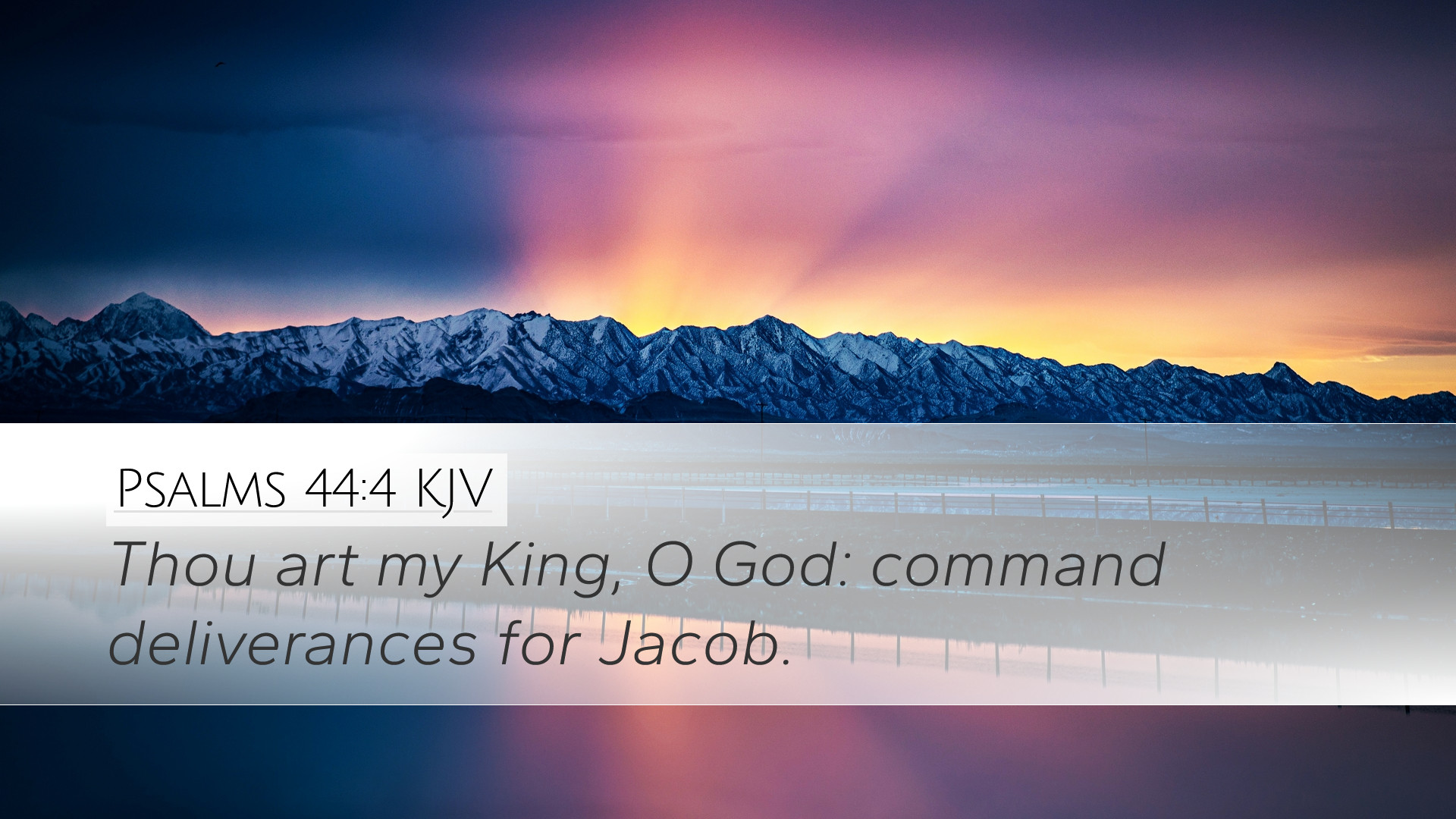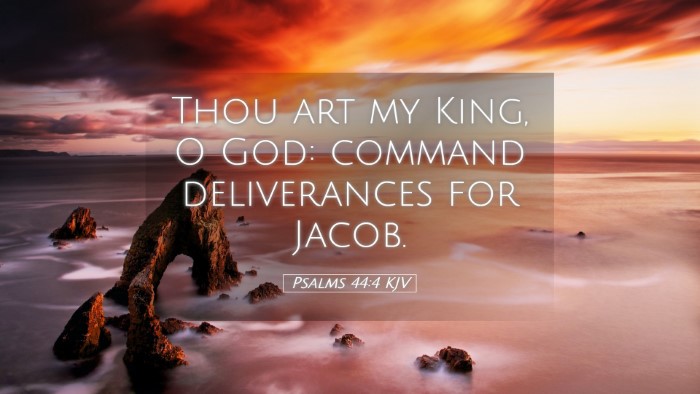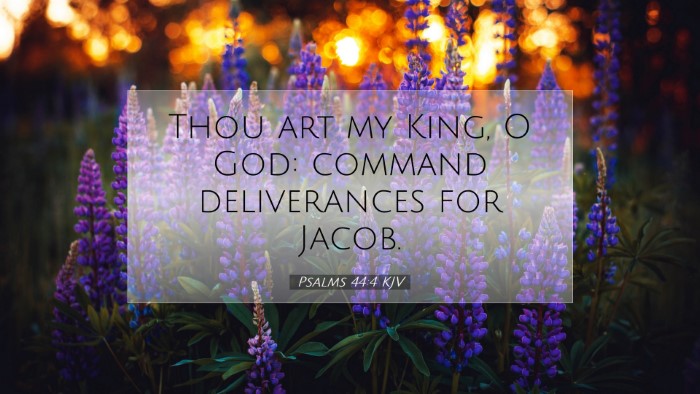Psalms 44:4 - A Comprehensive Commentary
Bible Verse: "Thou art my King, O God: command deliverances for Jacob."
Introduction
This verse, located within the context of Psalms 44, conveys a powerful plea for divine intervention during times of distress. The psalmist acknowledges God's sovereignty and implores Him for deliverance. This meditation on Psalms 44:4 draws upon insights from public domain commentaries, providing a rich exploration of its theological implications.
Contextual Background
The psalm is a communal lament reflecting on Israel's past victories and current struggles. The historical backdrop indicates periods of oppression and national anxiety, prompting the invocation of divine kingship to remind the reader of God's past faithfulness.
Historical Setting
Scholars note that Psalms 44 may have been penned during a time of national crisis, possibly post-exile or amidst foreign oppression. Such a context heightens the urgency of the psalmist’s prayer, presenting it as a communal cry for help.
Thematic Insights
Matthew Henry expounds on the themes of kingship and deliverance inherent in this verse. The reference to God as "my King" emphasizes His authority and governance over Israel. This declaration serves not merely as a personal affirmation but as a collective acknowledgment of God's rule.
- Acknowledgment of Sovereignty: The psalmist recognizes God's ultimate authority, suggesting that true leadership and deliverance come from Him alone.
- Call to Action: The request for God to "command deliverances" indicates a need for decisive action from God in delivering His people from their enemies.
Matthew Henry's Commentary
Henry emphasizes the importance of recognizing God’s power to save. He notes that the psalmist’s mention of "deliverances" reflects both past interventions and a request for current salvation. Thus, there is a dual understanding of deliverance as a historical act and a present need.
Albert Barnes' Reflection
Barnes expands on the notion of kingship, associating it with God’s covenant relationship with Israel. He suggests that recognizing God as King places the responsibility of the Israelites on understanding their identity and reliance upon Him during crises.
Adam Clarke's Interpretation
Clarke points out that the plea for "deliverances" indicates a multifaceted approach to salvation—emphasizing not just military deliverance but also spiritual and emotional restoration. This comprehensive need portrays God as a multifaceted deliverer in the lives of His people.
Theological Implications
This verse holds rich theological significance, especially concerning the nature of God’s kingship and His people’s relationship to Him. It also invites reflection on contemporary applications of seeking divine deliverance.
- The Nature of God as King: By calling God "my King," the psalmist invites believers to consider their submission and allegiance to God’s rule in their lives.
- Understanding Deliverance: The psalm articulates the dynamic of seeking God for help, acknowledging human vulnerability and the need for divine intervention.
Pastoral Applications
For pastors and theologians, this verse underscores the importance of grounding congregations in the sovereignty and delivering power of God. Pastoral care can be directed toward fostering faith during trials, encouraging believers to express their needs openly before their King.
Encouraging Prayer and Dependency on God
Psalms 44:4 serves as an encouragement for believers to approach God with their needs, reinforcing the belief in God as the ultimate source of salvation. Pastors can guide their flocks in prayer practices that reflect this dependence.
Leading with Vision and Hope
Church leaders can draw from this psalm to remind their communities of God’s past faithfulness. As the psalmist reflects on history, leaders can encourage believers to recount their experiences of God’s deliverance as a basis for hope in future challenges.
Conclusion
In Psalms 44:4, the psalmist’s declaration of allegiance and plea for deliverance encapsulates the essence of the believer's relationship with God. By recognizing Him as King, the faithful are called to trust in His power for salvation, both historically and presently. As we reflect on this text, may we be inspired to deepen our understanding of God’s kingship and our place within His sovereign plan.
Further Reflections
As you meditate on Psalms 44:4, consider the following questions:
- How does recognizing God as King transform your personal faith journey?
- In what areas of your life do you need to seek God's deliverance?
- How can the truths of this psalm influence your community and church's understanding of God's justice and mercy?


